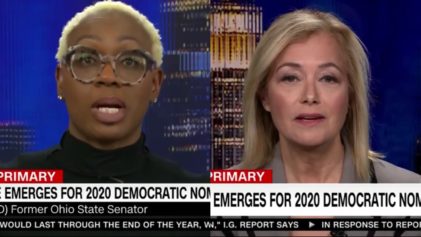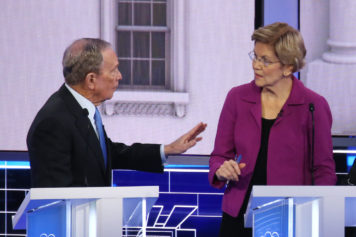With every presidential election, it seems that Black voters are left to choose the lesser of two evils, and are often forgotten and left out in the cold.
Even in the case of President Obama, although the nation’s first Black president has had more leeway in his twilight years to address the needs of the Black community, in earlier times he received a healthy dose of criticism for being “a president for all America” and not Black America. As other groups were benefiting from the Obama presidency, the Black community decried his lack of attention to their concerns, particularly the high unemployment rate, as he was often reluctant to address racial issues in a straightforward manner that did not offend whites. As Wall Street and the auto industry rebounded through a government handout, Black America continued to flounder.
In the next election cycle and beyond, will Black voters be more mindful about holding their elected officials accountable? When will we stop voting strictly along party lines or stop blindly casting our vote for someone without scrutiny?
A case in point is the ascendancy of presidential candidate Hillary Clinton, who is already receiving a high degree of unqualified, committee support. Granted, the former first lady, senator and secretary of state has been saying all of the right things regarding racial inequality, discrimination, the criminal justice system and police abuse in communities of color.
Moreover, Clinton enjoys healthy support in the Black community, according to an NBC-Wall Street Journal poll, giving her 95 percent of the nonwhite Democratic vote, and a New York Times-CBS News poll in which 57 percent of African-Americans had a favorable view of Clinton. If she becomes the Democratic nominee, she would have to command Obama-level support from the Black community in order to win, which means high Black enthusiasm and most of all, turnout.
But should we not scrutinize Hillary Clinton, as opposed to crowning her? After all, her eventual support for Obama notwithstanding, Black voters should not forget that Hillary (and Bill) Clinton on the 2008 presidential primary trail, claimed to best represent “hard-working Americans, white Americans” and implied Obama’s candidacy was symbolic like Jesse Jackson’s 1984 and 1988 runs.
In any situation, politics included, it is important to have options. As was reported by Newsone, Sen. Bernie Sanders, who is enjoying support among white liberals and progressives, has a plan to win over voters of color. A socialist who has addressed the progressive issues of wealth inequality and economic exploitation without emphasizing race in the early days of his candidacy, he is hoping that his support of ObamaCare and his involvement in the civil rights movement will allow him to make inroads in the Black and Latino communities.
“The American people are sick and tired of seeing the disappearance of the great middle class of this country,” Sanders told George Stephanopoulos of ABC News’ This Week. “They’re sick and tired of working longer hours for low wages while at the same time 99 percent of all new income generated is going to the top one percent.”
I have a long history in fighting for civil rights. I understand that many people in the African-American community may not understand that,” Sanders added. “Given the disparity that we’re seeing in income and wealth in this country, it applies even more to the African-American community and to the Hispanic community. And what we are going to do is make a major outreach effort to those communities, let people know my background, let people know my record.”
Meanwhile, The Guardian reported that while Clinton enjoys significant Black celebrity support from Beyoncé, 50 cent, Snoop Dogg and Ja Rule, rapper Killer Mike has endorsed Sanders for his support of the Voting Rights Act, which was gutted by Supreme Court in 2013.
“I cannot support another Clinton or [Bush] ever,” Killer Mike tweeted. “I am beginning to see American political families like monarchs and I have no affection for monarchs,” he added.
Both Clinton and Sanders have much work to do before they earn the Black vote. Whoever becomes the candidate of the respective parties—and even the third parties—Black voters should ensure they do not find themselves in the same situation, which is settling for one candidate for which they have little excitement, and another which, fresh out of the Tea Party, is morally and politically unacceptable.


